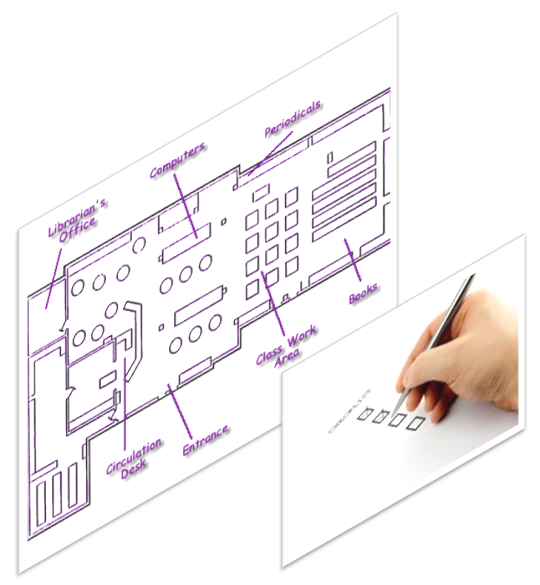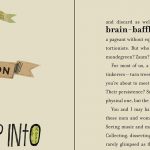In addition to their regular projects, I often required the graduate students in my library management classes to create an assessment by which those projects could be evaluated – a checklist or other tool consisting of quality criteria. I then asked that the students themselves complete their own evaluation, applying it to their own projects. And I gave them the grades they gave themselves. I found students to be more critical of their own work than I was.
 For example, one of the assignments was to create a floor plan for a new school library. So not only did the students submit an original floor plan, they needed to submit something like:
For example, one of the assignments was to create a floor plan for a new school library. So not only did the students submit an original floor plan, they needed to submit something like:The floor plan:
- Accommodates a sufficient number of students
- Has a traffic pattern that allows high and low activity areas
- Includes areas for large, small, and individual work
- Is easy to supervise by a single adult
- Includes computer productivity areas…
You get the point.
Other projects included a library manual, sample policy statements, short and long term plans, etc. Invariably, students found creating the assessment more difficult than completing the project.
My students hated the requirement, finding creating an assessment more challenging than doing the project itself.
My objective, of course, in giving this as a part of the assignment was to enforce the idea that we as professionals must continuously be self-evaluators, not dependent on our supervisors to tell us how well we’ve done. As an increasing number of workers become self-employed, entrepreneurial/intrapreneurial, or just plain treated like trusted professionals, effective self-evaluation becomes a critical skill.
Why do we not ask all our students to be more self-evaluative? Justifying why a solution works, why an answer is correct, or why an interpretation is sufficiently supported is just a foundational ability any independent worker has to have.
Especially writers.






